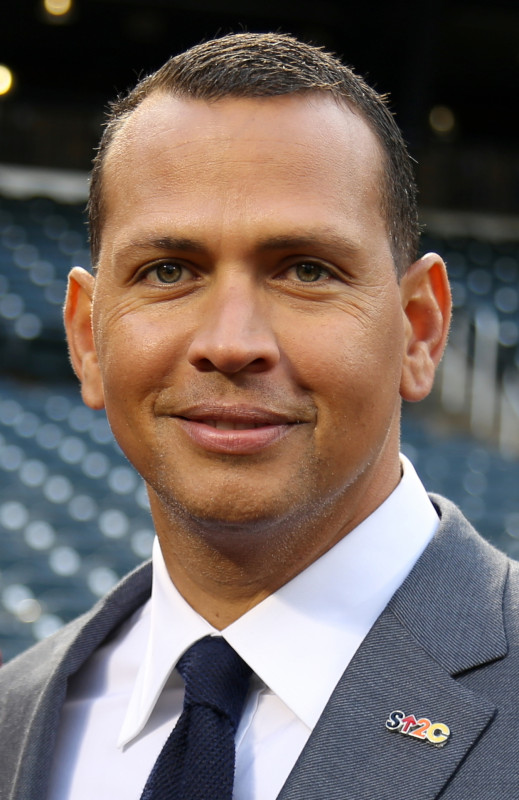Public opinion and media debates around Alex Rodriguez—discover key moments of controversy.
Alex Rodriguez, nicknamed "A-Rod," is a former MLB shortstop and third baseman. He played for the Seattle Mariners, Texas Rangers, and New York Yankees over 22 seasons. Once a highly touted prospect, he's considered one of baseball's greatest players. Currently, Rodriguez is the chairman and CEO of A-Rod Corp, chairman of Presidente beer, and owns a controlling interest in the Minnesota Timberwolves. His career combines success on the field with entrepreneurial ventures.
2000: Primobolan Allegations
It was mentioned that Primobolan, which Rodriguez tested positive for in 2003, is the same steroid that Barry Bonds is alleged to have tested positive for in 2000 and 2001.
2001: Rodriguez admits to Steroid Use
Alex Rodriguez admitted to using steroids from 2001 to 2003, buying an unidentified drug over-the-counter in the Dominican Republic.
2001: Use of Steroids
From 2001 to 2003, Alex Rodriguez admitted to using steroids while playing for the Texas Rangers.
2001: Admission of Banned Substance Use
In an interview, Alex Rodriguez admitted to using banned substances from 2001 to 2003, citing pressure to perform. He claimed his time in New York had been clean and expressed regret for his actions.
2001: Primobolan Allegations
It was mentioned that Primobolan, which Rodriguez tested positive for in 2003, is the same steroid that Barry Bonds is alleged to have tested positive for in 2000 and 2001.
2001: Rodriguez admits to steroid use starting in 2001
Two days after the allegations, Alex Rodriguez admitted to steroid use from 2001 until 2003, claiming that he ceased using such substances after spring training that year.
November 2003: Samples subpoenaed by federal authorities
In November 2003, the 104 positive samples were subpoenaed by federal authorities, preventing their destruction.
2003: Rodriguez admits to Steroid Use
Alex Rodriguez admitted to using steroids from 2001 to 2003, buying an unidentified drug over-the-counter in the Dominican Republic.
2003: Trade with the Boston Red Sox
Following the 2003 season, The Rangers agreed to a trade with the Boston Red Sox, sending Rodriguez to Boston, but the Major League Baseball Players Association vetoed the deal because it called for a voluntary reduction in salary by Rodriguez.
2003: Use of Steroids
From 2001 to 2003, Alex Rodriguez admitted to using steroids while playing for the Texas Rangers.
2003: Potential Failed Drug Test
In 2003, Alex Rodriguez had a potential failed drug test. He was later informed in August 2004 that he "may or may not have" failed his drug test.
2003: Primobolan Usage
In 2003, Alex Rodriguez tested positive for Primobolan. Primobolan has no approved prescription use.
2003: Rodriguez tests positive for performance-enhancing drugs
In 2003, Alex Rodriguez tested positive for performance-enhancing drugs. The report was compiled as part of Major League Baseball's survey to see whether a mandatory random drug testing program might be necessary.
2003: Rodriguez takes responsibility
In 2003, Alex Rodriguez took responsibility for his mistakes. Friend and former teammate Doug Glanville berated Rodriguez's critics for their "lack of outrage about how a confidential and anonymous test could be made public."
2003: Reported positive test for steroids
In February 2009, Sports Illustrated reported that Alex Rodriguez tested positive for two anabolic steroids, testosterone and Primobolan, during his 2003 season with the Texas Rangers.
2003: Admission of Banned Substance Use
In an interview, Alex Rodriguez admitted to using banned substances from 2001 to 2003, citing pressure to perform. He stated that he last took them following a spring training injury in 2003 while playing for the Rangers and expressed regret for his actions.
July 24, 2004: Scuffle with Jason Varitek
On July 24, 2004, during his first season with the Yankees, Alex Rodriguez was hit by a pitch from Bronson Arroyo, leading to a scuffle with Boston Red Sox catcher Jason Varitek and a bench-clearing brawl between both teams.
August 2004: Tip from MLBPA
In August 2004, Alex Rodriguez stated that he was told by Gene Orza of the MLBPA that he "may or may not have" failed his 2003 drug test.
September 2004: Accusation of Tipped Drug Test
In September 2004, Gene Orza of the MLBPA was accused by three unnamed MLB players of tipping Alex Rodriguez to an upcoming drug test.
2004: Controversial play in Game 6 of ALCS
During Game 6 of the 2004 American League Championship Series, Alex Rodriguez was called out for interference after hitting a slow roller and swiping at pitcher Bronson Arroyo's glove. The Yankees then lost the ALCS.
2004: Drew criticism due to unsuccessful Yankees postseasons
From 2004 to 2007, Alex Rodriguez faced criticism in the New York area due to the Yankees' unsuccessful postseasons, particularly his sub-.200 batting average in the 2005 and 2006 postseasons.
2004: Master list of players seized
In 2004, a coded master list of 104 players was seized during the BALCO investigation in a federal raid. Later that year, the list was released to the Major League Baseball Players Association.
2004: Mandatory drug testing began
In 2004, following the positive test results, mandatory drug testing of major league baseball players began, with penalties for violations.
2005: Drew criticism due to unsuccessful Yankees postseasons
From 2004 to 2007, Alex Rodriguez faced criticism in the New York area due to the Yankees' unsuccessful postseasons, particularly his sub-.200 batting average in the 2005 and 2006 postseasons.
2005: Canseco planned to publish another book about MLB
In July 2007, former outfielder Jose Canseco announced plans to publish another book about Major League Baseball, promising "other stuff" on Rodriguez, and calling him a hypocrite. Also in 2007, Rodriguez denied ever using performance-enhancing drugs in an interview with Katie Couric.
2005: MLB warned Rodriguez not to participate in illegal poker games
MLB had warned Alex Rodriguez in 2005 not to participate in illegal poker games, prior to allegations in 2011.
2006: Drew criticism due to unsuccessful Yankees postseasons
From 2004 to 2007, Alex Rodriguez faced criticism in the New York area due to the Yankees' unsuccessful postseasons, particularly his sub-.200 batting average in the 2005 and 2006 postseasons.
July 2007: Canseco planned to publish another book about MLB
In July 2007, former outfielder Jose Canseco announced plans to publish another book about Major League Baseball, promising "other stuff" on Rodriguez, and calling him a hypocrite. Also in 2007, Rodriguez denied ever using performance-enhancing drugs in an interview with Katie Couric.
October 28, 2007: Rodriguez opts out of Yankees contract
On October 28, 2007, Alex Rodriguez's agent announced that he would not renew his contract with the Yankees, citing concerns about the team's future. This decision led to criticism due to its timing during the World Series and the lack of prior communication with Yankee management.
2007: Drew criticism due to unsuccessful Yankees postseasons
From 2004 to 2007, Alex Rodriguez faced criticism in the New York area due to the Yankees' unsuccessful postseasons, particularly his sub-.200 batting average in the 2005 and 2006 postseasons.
2007: Denial of PED Use
In 2007, Alex Rodriguez denied ever using performance-enhancing drugs in an interview.
July 7, 2008: Divorce Filing
On July 7, 2008, Cynthia Rodriguez filed for divorce, citing "emotional abandonment" and "extramarital affairs and other marital misconduct" by her husband.
February 7, 2009: Report of Rodriguez's positive steroid test
On February 7, 2009, Sports Illustrated reported that Alex Rodriguez tested positive for testosterone and Primobolan in 2003. His name appeared on a government-sealed list of major-league players who tested positive for performance-enhancing drugs.
February 2009: Reported positive test for steroids
In February 2009, Sports Illustrated reported that Alex Rodriguez tested positive for two anabolic steroids, testosterone and Primobolan, during his 2003 season with the Texas Rangers.
March 2009: Rodriguez receives treatment from Anthony Galea
In March 2009, Alex Rodriguez received treatment from Canadian sports doctor Anthony Galea.
2009: Admission of Steroid Use
In 2009, Alex Rodriguez admitted to using steroids from 2001 to 2003 while playing for the Texas Rangers.
2009: Received nickname "A-Fraud"
In 2009, according to Joe Torre's book, Alex Rodriguez earned the nickname "A-Fraud" from teammates and clubhouse attendants who resented his demands.
February 28, 2010: Report of Rodriguez receiving treatment from Anthony Galea
On February 28, 2010, it was reported that Rodriguez had received treatment from Anthony Galea in March 2009. Galea was later involved in a plea agreement for bringing unapproved and mislabeled drugs into the United States.
2010: Rodriguez Reportedly Received HGH
Between 2010 and 2012, Rodriguez reportedly received HGH from Biogenesis of America, an anti-aging clinic.
2011: Rodriguez has arthroscopic surgery on his knee to repair a torn meniscus
In 2011, Alex Rodriguez batted .295 with 13 home runs and 52 RBIs prior to the All-Star break. He was placed on the disabled list when he opted for arthroscopic surgery on his knee to repair a torn meniscus that impacted his power. He was also facing allegations of participating in illegal poker games.
2011: Galea reaches plea agreement
In 2011, Anthony Galea reached a plea agreement for bringing unapproved and mislabeled drugs into the United States, and confirmed he had treated Rodriguez but claimed he only prescribed anti-inflammatories.
2012: Rodriguez Reportedly Received HGH
Between 2010 and 2012, Rodriguez reportedly received HGH from Biogenesis of America, an anti-aging clinic.
2012: Rodriguez accused the Yankees of mishandling his hip injury
In 2013, after his return, Alex Rodriguez's lawyers accused the Yankees of mishandling his hip injury, alleging that the team withheld the injury from him and continued to play him in 2012 despite his condition.
August 3, 2013: MLB rebuffs players' union offer
On August 3, 2013, MLB rejected the players' union's offer to negotiate and gave Rodriguez until August 4 to reach an agreement regarding a suspension or greater punishment for his role in the Biogenesis affair.
August 2013: Suspension Announcement
In August 2013, MLB announced a 211-game suspension for Alex Rodriguez for his involvement in the Biogenesis scandal.
August 18, 2013: Rodriguez hit by pitch, hits home run
During a game against the Red Sox on August 18, 2013, Alex Rodriguez was hit by a pitch by Ryan Dempster, leading to the ejection of Yankees manager Joe Girardi. Later in the game, Rodriguez hit a home run off Dempster. Dempster was later suspended five games for hitting Rodriguez with a pitch.
2013: MLB announces Rodriguez's suspension for Biogenesis scandal
In 2013, Alex Rodriguez made his return with the Yankees on August 5, the same day that MLB announced that he would be suspended through the 2014 season for his role in the Biogenesis scandal. Rodriguez continued to feud with the Yankees front office following his return.
January 11, 2014: Suspension upheld
On January 11, 2014, a lengthy arbitration process upheld Alex Rodriguez's suspension, reducing it to 162 games.
February 7, 2014: Rodriguez accepts suspension
On February 7, 2014, Alex Rodriguez announced his decision to abandon his lawsuit and accept the suspension for the 2014 season.
March 2014: Refusal to pay legal fees
In March 2014, multiple sources reported that Alex Rodriguez had refused to pay the balance of his legal fees, amounting to more than $3 million.
July 2014: Sued by lawyers
In July 2014, Alex Rodriguez was sued by his lawyers for $380,000 in unpaid legal fees.
November 2014: Admission to DEA
In November 2014, it was revealed that in the previous January, Alex Rodriguez had admitted to the Drug Enforcement Administration that he had used performance-enhancing drugs.
2014: MLB announces Rodriguez's suspension for Biogenesis scandal
In 2013, MLB announced that Alex Rodriguez would be suspended through the 2014 season for his role in the Biogenesis scandal.
2014: Suspension
In 2014, Alex Rodriguez was suspended for 162 games due to his involvement in the Biogenesis scandal.
2014: Suspension upheld for the entire season
In 2014, Alex Rodriguez's suspension, previously announced but delayed, was upheld, leading to his suspension for the entire regular season and postseason. Also in 2014, it was announced he would no longer be an everyday third baseman and would serve as a designated hitter.
2014: MLB suspends Rodriguez
In 2014, MLB suspended Rodriguez from August 8 through the end of the 2014 season for violating the league's PED policy.
January 19, 2015: Met with Commissioner of Baseball Rob Manfred
On January 19, 2015, Alex Rodriguez met with the new Commissioner of Baseball, Rob Manfred, where Rodriguez reportedly apologized and promised to behave in the future.
February 17, 2015: Issued a letter of apology
On February 17, 2015, Alex Rodriguez issued a hand-written letter of apology to Major League Baseball, the Yankees, the Steinbrenner family, the Players Association, and the fans.
Mentioned in this timeline
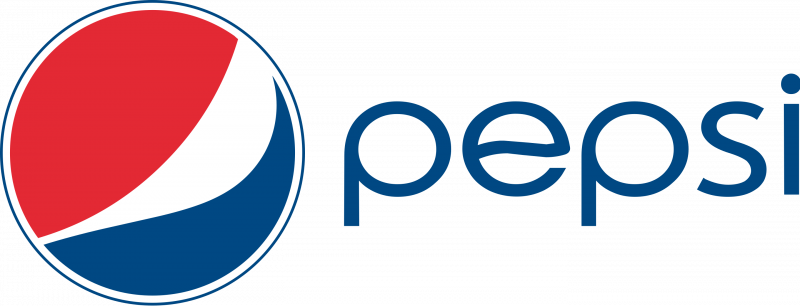
Pepsi is a cola-flavored carbonated soft drink and the flagship...

Basketball is a team sport played on a rectangular court...

Jennifer Lopez or J Lo is a multifaceted American entertainer...
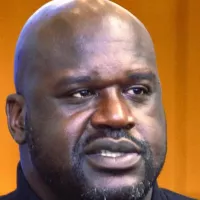
Shaquille O'Neal or Shaq is a celebrated American former professional...
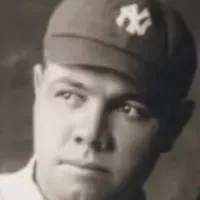
Babe Ruth nicknamed the Bambino and the Sultan of Swat...
The United States of America is a federal republic located...
Trending

2 hours ago Warriors face play-in, Curry's injury raises concerns, Kerr lowers expectations, Moody's role?
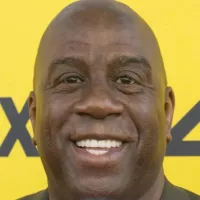
14 minutes ago Michael Jordan's NASCAR impact: Antitrust lawsuit, 23XI Racing, and historic career.

2 hours ago Stephen A. Smith criticizes Draymond Green's comments on Nico Harrison as unfair.

2 hours ago Kris Dunn Recovered From Injury, Briefly Exited Game After Elbow Contact

2 hours ago Al Horford's Role Shifts: Back to Starting Lineup, Then Bench, Mindset Revealed.
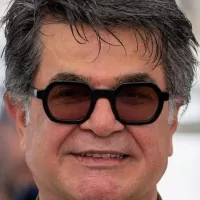
3 hours ago Jafar Panahi faces restrictions, continues filmmaking despite adversity and imprisonment in Iran.
Popular

Jesse Jackson is an American civil rights activist politician and...

Hillary Diane Rodham Clinton is a prominent American politician lawyer...

Jim Carrey is a Canadian-American actor and comedian celebrated for...

XXXTentacion born Jahseh Dwayne Ricardo Onfroy was a controversial yet...

Michael Joseph Jackson the King of Pop was a highly...

Kashyap Pramod Patel is an American lawyer who became the...
